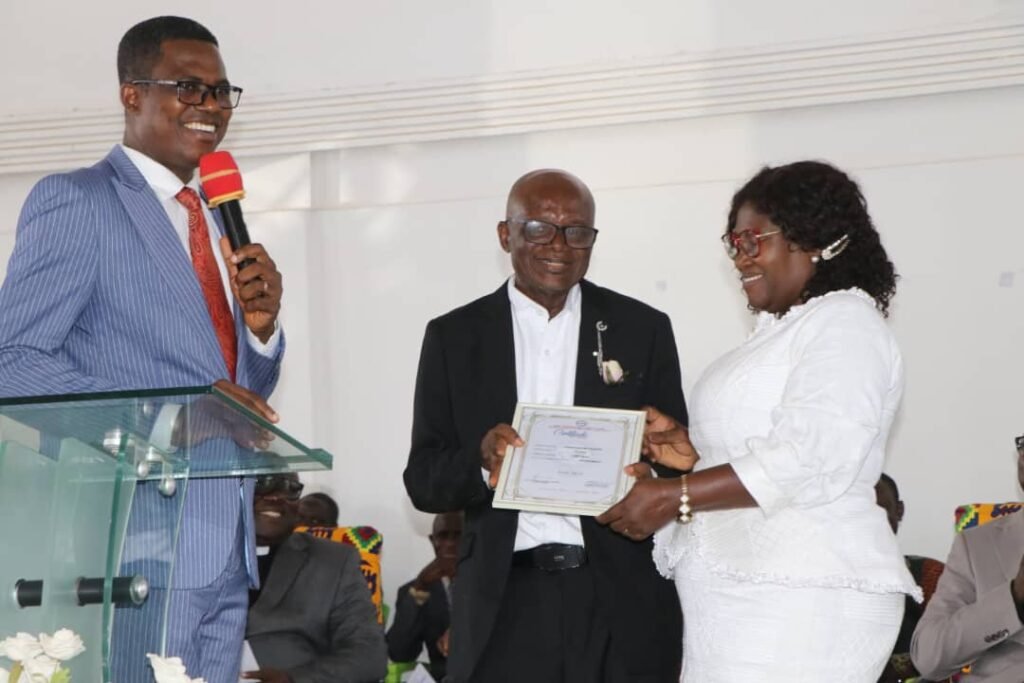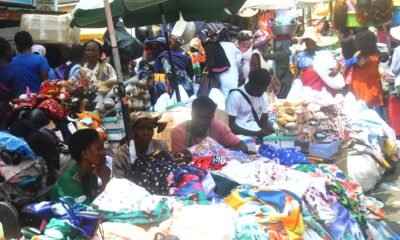News
Election 2024: EC begins nationwide ballot distribution

Election 2024: EC begins nationwide ballot distributionThe Electoral Commission (EC) will begin transporting ballot papers nationwide today, Thursday, November 14, in preparation for the December 7 elections.
In a letter dated November 13, the EC informed the General Secretaries of political parties about the distribution schedule.
The first phase will start with the Greater Accra Region today, followed by Central, Western, Savannah, and Upper West Regions on Friday, November 15.
On Saturday, November 16, Ashanti, Ahafo, and Western North Regions will receive their ballot papers.
This marks the next step in the EC’s month-long preparations, which also included finalizing voter registration, allocating polling stations, and training election officers.
The ballot papers will be stored in secure police facilities in each region until election day. On the day of the election, they will be handed over to officials in the presence of party representatives to ensure transparency.
The EC has reassured the public that strict security measures are in place to protect the integrity of the electoral process and prevent tampering or unauthorized access.
Source: Citinewsroom.com
News
Craze for x’mas shopping: Crowded markets, low patronage

Vendors of food and other wares associated with the Christmas celebration have expressed surprise at the low patronage despite the increased number of visitors to some of the major markets across the capital.
Four days to the celebration(Christmas), the markets are filled with various products ranging from food, clothing, livestock and many other stuff, but according to the vendors, patrons are doing more ‘window’ shopping.




The Spectator on visits to some of the markets in the capital, notably the Odawna, Makola, Accra Central Business District, New Town and others made similar observations as shoppers crowd them but did little in terms of purchases.
The paper also observed that majority of vendors, originally selling other wares have switched to product related to the festive season.
What it means is that there are a lot more clothes, food and vegetables, livestock and poultry, toys, firecrackers, drinks of different types and many others on display.




The markets have also stretched to the pedestrian pavement, leaving very narrow spaces for commuters to move about freely.
That, in addition to a few of the female vendors dressed in coloured attires to reflect the occasion, has heightened the euphoria, leaving the low sales as the only headache for the vendors.
Speaking with this paper, they sounded very optimistic, believing that sales would improve in the last few days to the yuletide.
According to them, there was the opportunity to sell beyond Christmas as the New Year celebration offers similar opportunity to trade the same wares.
They urged patrons to throng the markets to shop since prices were quite moderate and products affordable for all.
News
Retirement service for Elder John Ackom-Asante,3 others

Retired Deputy Editor of The Spectator, Elder John Ackom-Asante, was last Sunday honoured by the Church of Pentecost Windy Hills District in Kasoa in the Central Region, with a retirement thanksgiving service, after serving for 26 year as an Elder of the church.
He was honoured with a citation and certificate of service along with three other elders who served in the capacity for various years.





Elder Ackom-Asante was baptised at the Darkuman Central Assembly in 1979 and ordained as an Elder in 1997.
The citation read “Your selfless service, zeal, willingness to relate wholeheartedly and your desire to effect change has gone a long way to shape the lives of many people in the church and the nation over the 26 years of your dedication to the service of the Lord.”
Elder Ackom- Asante held many positions at the Darkuman Central Assembly, Obuasi in the Ashanti Region and Tema, serving in various capacities as youth and evangelism ministry leader and marriage counsellor.







He was the founding member of the Darkuman Christian Fellowship, a member of the Greater Accra Christian Fellowship; member of Bible Society of Ghana; founding member Obuasi Chapter Full Gospel Businessmen Fellowship International and founding member of New Times Corporation Christian Fellowship and Chaplain, Methodist University Tema Campus 2009- 2010.
As a professional journalist, Elder Ackom-Asante combined effectively and efficiently his duty as a member and elder of the church and the demands of his profession, with admiration from the church, kith and kin, till his retirement on December
From Alhaji Salifu Abdul-Rahaman, Kasoa











